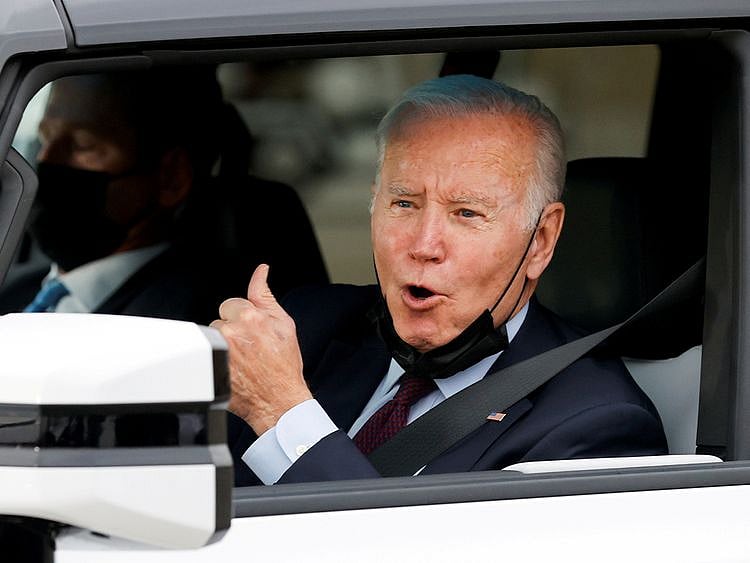In its recently released report on the global state of democracy, the International Institute for Democracy and Electoral Assistance (IDEA) has warned that the world is becoming more authoritarian.
Many well-established democracies have been backsliding due to their free speech restrictions, tampering with constitutional norms, and violating the rule of law. A similar conclusion on the health of democracy worldwide has been given by the Freedom House and the Varieties of Democracy (V-Dem) project.
With the decline of democracy, there have been further marginalisation of minorities in those countries and trampling of minority rights.
Since 2006 China and Russian have been enlarging their international influence. To counter it, US President Joe Biden gathered over 100 leaders for his virtual “Summit for Democracy” on 9-10 December 2021 and announced several initiatives to provide support to democratic movements worldwide.
However, this Summit lacked any specific objective, and several invitees were nationalist populists under whose leadership, the democracy in their countries backsliding.
‘Othering’ the minorities
The populist regimes in many democracies come to power ‘othering’ the minorities and creating a discourse in the name of ‘majority’. After assuming power, these regimes are doing everything to limit further the cultural, religious, economic, and public space of marginalised minorities.
In several democracies, the existing rules and institutions available for minorities to participate in public life are being curtailed or compromised on the pretext of giving the majority’s right back.
The populist movements also encourage physical attacks and hate crimes against minority groups, and that, besides other things, limit the participation of minority communities in the political process. Protection of minority rights is a must in a democracy to protect human rights and the rule of law.
In the absence of protection of minority rights, a state gets its governments through elections, but it lacks legal and institutional safeguards preventing abuse of power by those elected with majority support.
Many populist leaders, from America to Europe and Asia to Africa, under the guise of majority rule, have been shallowing up the fundamental rights of minorities. Exclusive populist-nationalist discourse projects and promotes the majority religious or ethnic group of the country as the sole owner of the nation-state.
The majority group is being branded as true natives, hard-working, taxpaying, and law-abiding, and minorities are lazy freeloaders, outsiders engaged in illegal activities, and even security threats. This binary framing by populist forces exacerbates discrimination against minorities and leads to a democratic decline.
Shifting the focus of power
Populist leaders often aim to increase the power of the executive at the expense of the judiciary, thus eliminating transparency and separation of powers. They tend to shift the focus of power from parliament to government and from law to decree.
Therefore, these populist leaders have become serious threats to democracy, specifically to the system of checks and balances and its representation feature in focusing only on majority rule and subverting the protection of minority rights.
The problem with populism is that it defines democracy as a majority rule. In some countries, nationalism combines with populism, takes away whatever right an individual has, and entrusts all the power at the whims of the state. When nationalism and populism meet, that sounds like the death knell for individual rights and protective mechanisms for minority groups.
On the surface, the notions of majority rule and minority rights may seem contradictory, but these two are foundational pillars of democracy. While democracy represents the popular will through a regime elected by a majority of voters, it is at the same time a must for it to provide the guarantee that majority rule should not violate the basic individual and group rights of minorities.
Fundamental individual rights
A democracy is expected to provide fundamental individual rights like freedom of speech and expression, right to protest and dissent, freedom of religion and belief, equality before the law, and opportunity for full participation in public life. At the same time, as part of group rights, democracies are required to provide minority groups the possibility to sustain cultural identity, social and religious practices.
The majority rule in a democracy is to decide public policies and govern the country; it is not a license to suppress and persecute the minority. Democracy not only needs the elected leaders to adhere to the laws formally but also, they are expected to act according to the spirit of the laws in promoting political equality.
Suppose the majority comes together and decides to deny the basic individual and group rights to minorities. In that case, the minorities can potentially lose any possibility of participating in policymaking that governs their lives. Thus, creating and protecting special measures and institutions is necessary for a democracy to protect marginalised minority groups.
In recent years, the rise of populist forces is crushing the minority rights in the name of majority rule, and it has become the primary factor in destroying democracies worldwide.
If President Biden is serious about bolstering democracies, he must target anti-democratic populist movements and ideologies that are using the electoral means given by democracy to grab power. There is no doubt that democracies are in danger, but the threats do not originate outside but inside the country.
Network Links
GN StoreDownload our app
© Al Nisr Publishing LLC 2026. All rights reserved.
